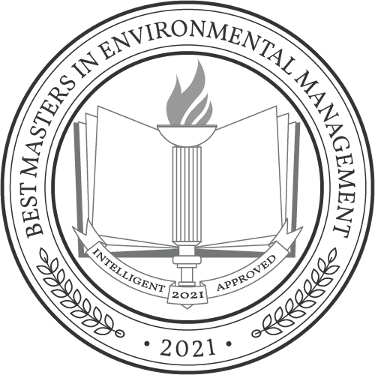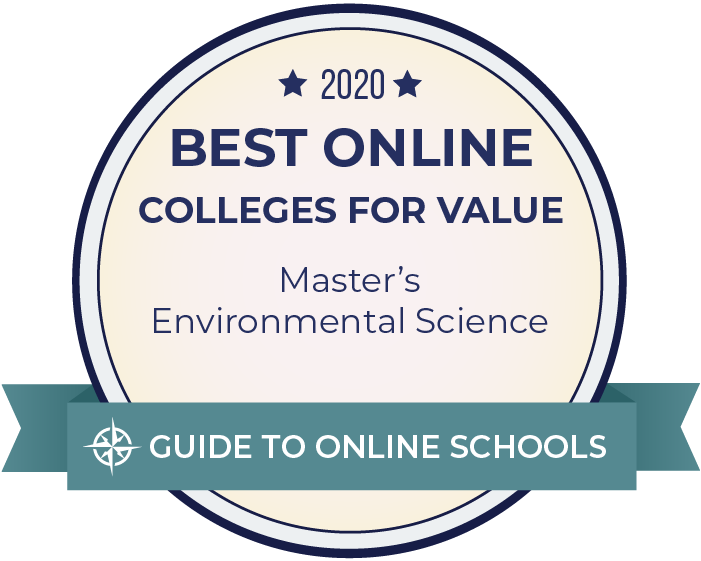Online Master of Science in Environmental Science Degree
The University of Idaho’s online Master of Science in Environmental Science is geared toward working professionals who want to protect and conserve tomorrow’s world. Because all industries need to be mindful of preserving existing ecosystems and keep sustainability at the forefront, this fully online master’s degree takes an intersectional approach, examining where environmental science overlaps with soil science, geography, engineering, ecology, biology, political science, sociology, chemistry and hydrology.
The Online Master’s in Environmental Science Degree at a Glance
The online M.S. in Environmental Science is a professional graduate degree offered through the College of Natural Resources (CNR) and is geared toward professionals who work full-time and have various family, community, and seasonal obligations. The program is structured like the on-campus CNR counterpart:
- Course content and requirements are the same for on-campus and online programs.
- All classes are taught by University of Idaho’s world-renowned faculty members, who themselves are leaders in the natural, physical, and social sciences.
- Students receive a degree from one of the country’s top schools for natural resources and conservation, according to College Factual.
CNR designed the online MS in Environmental Science degree as a multidisciplinary program, which analyzes the scientific, economic, social, and political factors playing a role in environmental conservation. In turn, the program incorporates concepts related to waste management, environmental pollution, policy and law, water science, land use, and energy systems:
- Online students research the effects of natural and unnatural processes and their interactions with the physical components of the planet and environment.
- Online students explore and propose solutions to the Earth’s environmental issues while learning to keep the biocomplexity of its ecosystems in balance.
- The curriculum and research analyze how nature and society interact, particularly in relation to the preservation of natural resources, sustainable development, and controlling man-made substances in the world’s water supply.
- Through the analysis of existing environmental systems, online students predict future ecological shifts and develop scientific- and mathematical-based solutions for protecting ecosystems and natural resources.
Applicants for graduate school need to have completed a bachelor’s degree (in any field), but there are no specific course pre-requisites for admission decisions.
After admission, students will meet with an advisor who will help determine whether their previous coursework is sufficient to support the student’s proposed career path. As students progress through the program, they may notice that some graduate courses identify pre-requisites. In those cases, students must contact the individual faculty instructor for more information about whether their background is sufficient to be admitted into the course. In rare cases, students might need to take additional undergraduate level courses to ensure success in their graduate program depending on the student’s undergraduate background and desired career path.
Individuals interested in applying to U of I’s online Master of Science in Environmental Science program need to follow all requirements detailed for graduate students. In addition to completing an application, candidates need to:
- have earned a bachelor’s degree from an accredited university with a final 3.0 to 4.0 GPA;
- submit three letters of recommendation; and
- show proof of English proficiency, if applying from outside of the United States.
GRE and other standardized test scores are not required.
The CNR has developed two tracks for the online Master’s in Environmental Science: thesis and non-thesis. Both tracks require 30 graduate-level credits and a research project and have similar expectations and structures:
- Depth requirement: Thesis and non-thesis students are expected to select and complete 500-level and above courses in one of three option areas, including biological science, physical science, and social science.
- Breadth requirement: Thesis and non-thesis online students must complete a minimum of three credits at the graduate level in each of the other two option areas.
- Other requirements: All MS in Environmental Science students must complete one course (3 cr.) in appropriate research methods or statistics at the 500 level and a seminar course (ENVS 501).
- Research requirement: Through ENVS 500 (thesis degree) or ENVS 599 (non-thesis degree), students complete a capstone or a work of original research over three to as many as 10 credits. Learn more about requirements and expectations.
Learn more about the structure for thesis and non-thesis degrees.
Non-Thesis Online M.S. in Environmental Science Degree
The non-thesis online M.S. in Environmental Science degree requires students to complete 27 credits of coursework, of which 12 credits are from the depth requirement and 21 are from 500-level and above subjects, and 3 credits of non-thesis research. Non-thesis projects do not require the student to conduct original research and, instead, are capstones synthesizing the degree’s materials and concepts.
Students selecting this format are further required to involve one faculty member for mentorship and guidance with their research project.
Thesis Online M.S. in Environmental Science
Online students deciding on this format must complete a thesis research project totalling six to 10 credits and 24 credits of coursework, of which 15 are dedicated to the selected option and 21 are from 500-level and higher subjects.
The thesis must be an original work of research that has potential to be published in a peer-reviewed journal, must be formatted for inclusion in the University of Idaho library, and displays the student’s aptitude for conducting independent, rigorous analysis. Students beginning their project must also assemble a supervisory committee consisting of their Major Professor and two faculty members from two other University of Idaho colleges.
Atmospheric Issues
Biodiversity and Evolution
Climate Change
Community and Human Dimensions
Earth Sciences: Cryosphere
Earth Sciences: Geomorphology
Earth Sciences: Hydrology
Earth Sciences: Seismology
Economics
Ecology: Animals & Insects
Ecology: Humans
Ecology: Plants
Energy
Environmental Chemistry and Materials
Environmental Education and Communication
Environmental Epidemiology and Entomology
Environmental Policy, Law, and Regulations
Food and Fiber
Human Health
Modeling, GIS, and Remote Sensing
Waste Management, Reclamation, and Remediation
Water Resources: Drinking Water
Water Resources: Reservoirs, Aquifers, and Rivers
Water Resources: Watershed Management
More and more industries are seeking to incorporate or switch to green technologies and sustainable processes. At the same time, consumers are demanding stricter environmental policies and regulations. Reflecting these developments, public and private organizations have an increasing need for professionals with environmental science backgrounds to offer their input and shape efforts for natural resource management, pollution prevention, air and water quality, land use planning, environmental compliance, and waste management.
According to figures from the Bureau of Labor Statistics, environmental scientists and specialists are expected to experience 8% more demand between 2018 and 2028, while organizations will need 3% more conservation scientists and foresters. As well, openings for environmental engineers and environmental engineering technicians are predicted to increase 8% and 9% respectively.
Learn More About the Online Master of Science in Environmental Science Degree
If you’re passionate about the future of our Earth and looking to advance your career, earn U of I’s online Master of Science in Environmental Science at your own pace, with in-state tuition rates no matter where in the country you reside. To learn more about the program, contact the CNR Graduate Studies Office, or fill out a request for information form today.









